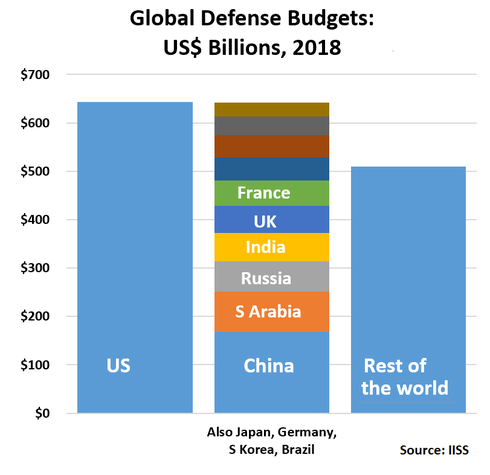Global Defense Spending on Rise: BBC
Global defense spending swells with low interest rates, easy borrowing and technological advancements. Military spending for 2019 rose 4 percent over 2018, reports BBC News. The International Institute for Strategic Studies released the figures. “In both the US and China defence spending increased by 6.6% in 2019, though the rate of growth is accelerating in the US, while it is slowing in China,” reports Jonathan Marcus for BBC News. European defense spending rose 4.2 percent, with the US expectation that NATO partners invest at least 2 percent of GDP on defense spending. The institute points to an unstable security environment and rising aggression, challenges to the rules-based international order, weakening arms-control agreements and alliances. Russia and the United States could counter trends with renewal of the New START Treaty, which expires in February 2021. New technologies like autonomous vehicles, drones, hypersonic missiles and complex defense systems require increased investment. The institute's report notes that Russia makes gains with less spending and indirect strategies, from intervention in Ukraine to election meddling. Defense against cyberwarfare and warfare through third parties is also challenging and costly. – YaleGlobal
Global Defense Spending on Rise: BBC
Global defense spending rose by some 4 percent in 2019 over 2018, the highest year-on-year increase in a decade, as new challenges emerge
Friday, February 14, 2020
Read the article about global defense spending from BBC News.
Jonathan Marcus is diplomatic correspondent for the BBC News.
Read about Military Balance, the report from the International Institute for Strategic Studies.

(Source: Military Balance, IISS, 2020)
BBC News
Copyright © 2020 BBC.